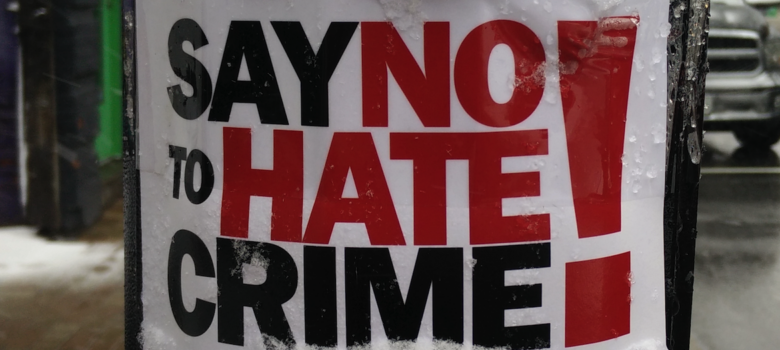Having a spent virtually the entire day yesterday talking with media and colleagues about Bill C-63, one thing has become increasingly clear: the Criminal Code and Human Rights Act provisions found in the Online Harms Act should be removed. In my initial post on the bill, I identified the provisions as one of three red flags, warning that they “feature penalties that go as high as life in prison and open the door to a tidal wave of hate speech related complaints.” There is no obvious need or rationale for penalties of life in prison for offences motivated by hatred, nor the need to weaponize human rights complaints by reviving Human Rights Act provisions on communication of hate speech. As more Canadians review the bill, there is a real risk that these provisions will overwhelm the Online Harms Act and become a primary area of focus despite not being central to the law’s core objective of mitigating harms on Internet platforms.
Indeed, these concerns are already attracting media coverage and were raised yesterday in columns and commentary from Andrew Coyne and Professor Richard Moon, who I think rightly describes the core provisions of the Online Harms Act as “sensible and workable” but notes that these other provisions are troubling. Bill C-63 is effectively four bills in one: (1) the Online Harms Act, which forms the bulk of the bill and is focused on the duties of Internet platforms as they respond to seven identified harms, (2) the expansion of mandatory child pornography reporting requirements to include those platforms, (3) the Criminal Code provisions, which opens the door to life in prison for committing offences that are motivated by hatred of certain groups, and (4) the changes to the Canadian Human Rights Act, which restores Section 13 involving communicating hate speech through the Internet as a discriminatory practice. The difference between the first two and the latter two is obvious: the first two are focused on the obligations of Internet platforms in addressing online harms, while the latter two have nothing directly to do with Internet platforms at all.
The Criminal Code and Human Rights Act changes originate in Bill C-36, which was introduced in 2021 on the very last sitting day of the Parliamentary session. The bill died on the order paper with an election call several weeks later and did not form a core part of either the online harms consultation or the 2022 expert panel on online harms. These provisions simply don’t fit within a legislative initiative that is premised on promoting online safety by ensuring that social media services are transparent and accountable with respect to online harms. Further, both raise legitimate concerns regarding criminal penalties and misuse of the human rights complaint system.
My initial post made the case that “this feels like the first Internet regulation bill from this government that is driven primarily by policy rather than implementing the demands of lobby groups or seeking to settle scores with big tech.” Upon reflection, I think that remains true for the provisions focused on the Internet platforms, which are the product of several years of expert panels and public consultations. There is still a need to address Bill C-63 concerns involving enforcement and the powers of the proposed Digital Safety Commission, but Internet regulation to counter identifiable harms remains justified since leaving the issue solely to the police is unlikely to mitigate against the risks of amplification of those harms on social media services. However, the Criminal Code and Human Rights Act reforms are less connected to those efforts and much more difficult to support. Given that they distract from the emphasis on Internet platform regulation and may undermine the balance struck in the provisions focused on the seven harms and platform duties to act reasonably, they should be removed from the bill.












“However, the Criminal Code and Human Rights Act reforms are less connected to those efforts and much more difficult to support.”
Agreed, however I still believe that these reforms are there to bait the Conservatives into voting against the bill; because these are part of the bill, unless the government is willing to remove them, it would mean that the Conservatives, and any party voting against the bill because of those provisions, would be accused of not being in favour of protecting kids in the media and in the upcoming election. The government appears to be starting to position themselves for the 2025 election and it is entirely possible that these provisions are part of it.
Another thing to note is that not many prosecutors appear to be willing to lay charges under the current hate crime setup, especially on the areas where the penalty is set to increase. Why would increasing the penalty available contribute to “public safety” in this case? It appears to be an attempt to steal from the Conservative “tough on crime” position, to recoup some cred lost as a result of C-5 (44-1) which repealed the mandatory minimum sentence on 14 offenses, mostly related to firearms.
Online Earnings $1280 per Day. A social media marketer promotes a product or a business through social media platforms. A social media marketer must understand how the social media platforms ei such as Facebook and Twitter provide and promote content to their subscribers.
GO >>>>>>>>> https://Profit3Revenue3.blogspot.com
I totally agree. That is a in depth observation.
Pingback: The Only Canadians Who Have A Problem With The Intention Of Canada's New Online Harms Bill Are Pedos, Porn-Hub And #MapleMAGA Conservatives - Crier Media
I still don’t think you understand.
1) They don’t care what anyone thinks (did they listen to you before on C11/C18?)
2) Those provisions you are suggesting they remove are the entire point of this legislation.
But good job going on TV and telling everyone how reasonable the bill was. That is the only thing they will want to hear from you.
During my time spent browsing the internet, I was fortunate enough to come across this website, where I discovered a lot of extremely interesting content. It is a very enjoyable book to read. I gave it a lot of enjoyment. I am grateful that you have shared this amazing knowledge with me.
Pingback: Liberals’ ‘online harms’ bill could stifle free speech: experts – NewZealand Times
A couple of questions:
1. What will happen when a US court rules that Canadian investigators require a US warrant before they can access any information at US social media companies?
2. How will the rules apply to distributed social media platforms, like Bluesky and Mastodon? Will they treat each instance as a separate platform?
3. Will any penalties against YouTube be based on YouTube’s revenue or on Google’s total revenue?
Good article. I learned a lot as I am not well versed in this area. But I know one thing. Trying to control the Internet is like trying to control the weather. Might as well quit now.
It is very unlikely that the bureaucrats running the show will have the ability or desire to go after the big players (e.g. tech giants) in any meaningful way. Rather, they will target the low hanging fruit with zeal. That is, some hapless dude in his basement who happens to write something the Liberals disagree with. Take the poor sap away in cuffs and throw him in the slammer to make an example.
Mark my words, that’s what’s coming.
Canadians need to wake up fast!
Pingback: Law and Media Round Up – 4 March 2024 – Inforrm's Blog
Pingback: Regulatory overreach • Telecom Trends
Pingback: The Online Harms Act doesn’t go far enough to protect democracy in Canada – Johansen.se
Pingback: Internet Harms Act nu protejează democrația în Canada - Acoinking.com
Pingback: Censure, not censor • Telecom Trends
Pingback: Un expert juridique met en garde le gouvernement Trudeau contre les critiques de la loi sur les préjudices en ligne (Online Harms Act)… L’un des plus grands experts juridiques du Canada a averti que le gouvernement fédéral du Premier ministre Justin Trudeau est « prêt » à « éclairer au gaz » les opposants à un nouveau projet de loi qui pourrait conduire à des peines de prison pour des infractions en ligne vaguement définies de « discours de haine ». – La Voix de Dieu Magazine
Pingback: The Online Harms Act – Pixel Envy
Wake up Canada!
Fabricators In Vancouver
I still love Canada! Ottawa Retaining Wall
It’s also worth noting that, particularly in the places where the punishment is set to rise, few prosecutors seem eager to press cases under the current hate crime framework.
Pingback: Oral.sk - Necenzurované správy
The government appears to be starting to position itself for the 2025 election and these provisions may be part of it.
Regards,
WordPress programmer